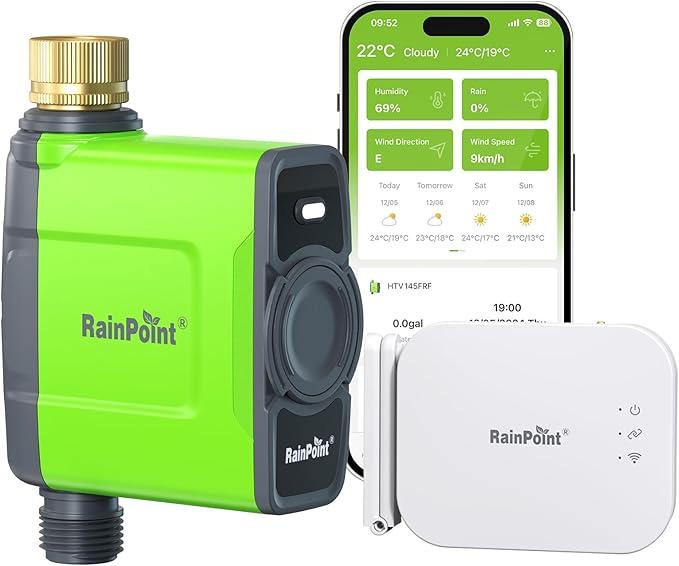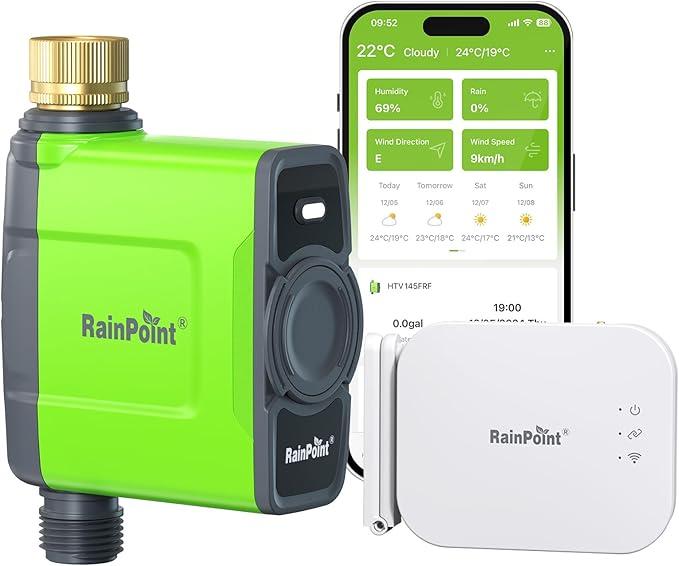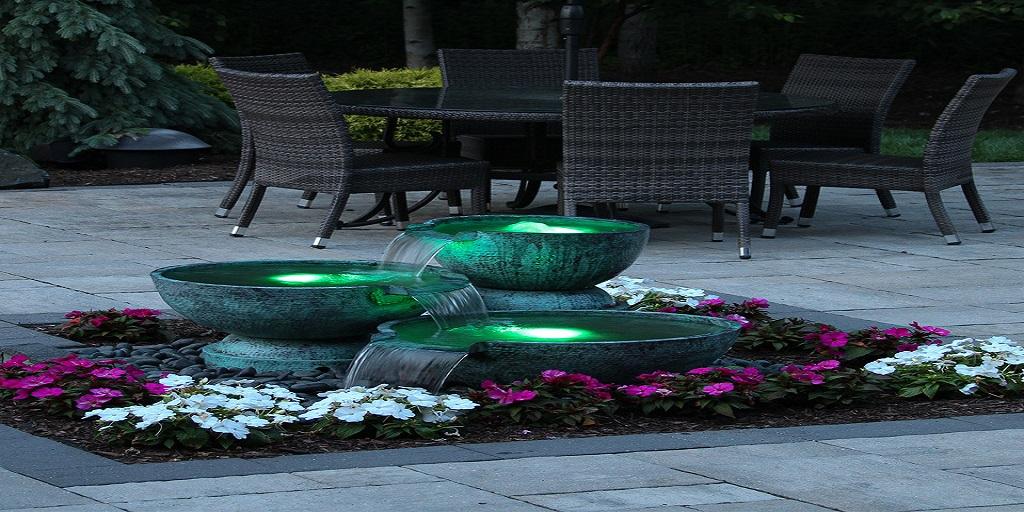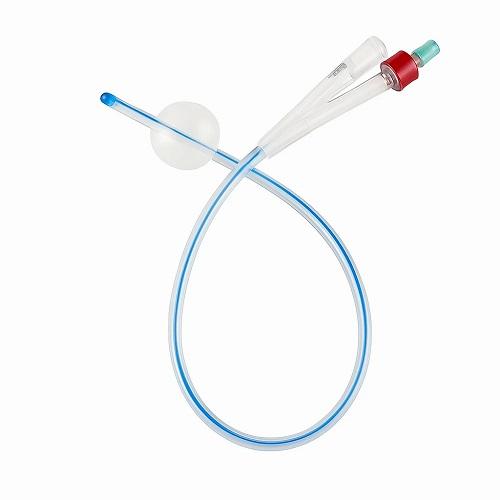RainPoint WiFi Timer with Ethernet Gateway Review: The Future of Smart Irrigation

The RainPoint WiFi Timer with Ethernet Gateway isn’t just an upgrade—it’s a leap into effortless, weather-aware irrigation. After testing multiple smart timers (including RainPoint’s own 2-zone models), this next-gen system stands out with bulletproof reliability, ultra-easy setup, and pro-grade automation. If you’ve ever dreamed of a self-watering yard, this is the closest thing to magic.
Key Features & Performance
1. Effortless Setup (Under 10 Minutes!)
Premium build: Metal threads, reinforced plastics—no flimsy parts.
App-guided installation: Just scan the QR code, pick your model (note: ignore the icons, match the model number!), and sync via Ethernet Gateway.
No signal drops: Unlike WiFi-only timers, the Ethernet Gateway ensures 24/7 connectivity.
2. Genius Watering Automation
Hyper-local weather integration: Skips cycles if rain is forecasted—no more wasted water.
On-demand manual control: Need a quick soak? Tap the app.
Future-ready: Ready to pair with soil sensors, drip lines, and underground irrigation (my next project).
3. Rock-Solid Performance
Flawless scheduling: Executes cycles to the minute—even during heatwaves.
Tough enough for extremes: Survives sun, storms, and accidental kicks.
Quiet operation: No loud solenoid clicks like cheaper timers.
4. App Improvements & Quirks
Sleeker UI vs. older RainPoint apps.
Missing Home Assistant support (come on, RainPoint—open this up!).
Tuya-free: A win for privacy-focused users.
Pros vs. Cons
|
Pros |
Cons |
|---|---|
|
✔ 10-minute setup (even for rookies) |
❌ No Home Assistant (yet) |
|
✔ Ethernet Gateway = zero dropouts |
❌ Model icons in app are confusing |
|
✔ Weather-aware skips (saves $$$) |
❌ Premium price (worth it, but not cheap) |
|
✔ Upgrade path for soil sensors |
|
|
✔ Quiet, heavy-duty build |
Real-World Impact
Lawn care on autopilot: My grass stayed green during a 3-week drought.
Garden expansion ready: Prepped for drip lines + sensors with zero extra setup.
No more "Oops, I left the hose on": The app confirms every cycle.
Final Verdict
This isn’t just a timer—it’s a hub for your entire smart yard. While I’d love Home Assistant support, the Ethernet reliability, weather smarts, and pro build make it the best WiFi timer I’ve tested.
Rating: 9.5/10
Best for:
Techies who want set-and-forget watering.
Large properties needing dead-reliable signals.
Future-proof smart gardens.
Pro Tip: Buy the Ethernet Gateway bundle—WiFi alone can’t match its stability!
Would I rebuy? Absolutely. Already recommending it to neighbors. RainPoint just made smart irrigation stupid-easy.

Optimize Your Garden with the RainPoint Soil Sensor: Uses, Pros & Cons
The RainPoint soil sensor is a smart gardening tool designed to monitor soil moisture levels and help users maintain healthy plants and conserve water. Whether you're a home gardener or managing a larger landscape, this device offers an efficient way to make informed watering decisions.
Key Uses of the RainPoint Soil Sensor
-
Home gardening: Easily monitor the moisture of flower beds, vegetable patches, or indoor plants.
-
Lawn care: Prevent overwatering or underwatering by accurately tracking soil conditions.
-
Smart irrigation systems: Pair the RainPoint soil sensor with Wi-Fi controllers for automated watering schedules.
-
Greenhouses: Maintain optimal humidity and soil moisture levels for sensitive plants.
Advantages of the RainPoint Soil Sensor
-
Water conservation: Avoid wasteful watering by only irrigating when the soil is dry.
-
Plant health: Ensure consistent moisture levels, promoting stronger roots and healthier growth.
-
User-friendly design: The RainPoint soil sensor offers easy installation and app-based controls.
-
Real-time data: Monitor moisture levels anytime via smartphone, ensuring timely decisions.
Disadvantages to Consider
-
Limited compatibility: Some models may only work with RainPoint-branded systems or apps.
-
Battery dependency: Requires periodic battery changes, which may be inconvenient for busy users.
-
Signal range issues: The sensor’s data transmission may weaken in large or complex outdoor areas.
Conclusion
The RainPoint soil sensor is a valuable tool for anyone serious about plant care and efficient water use. While it has some limitations, its ease of use and practical benefits make it a strong investment for smart gardening. By using the RainPoint soil sensor strategically, you can enjoy greener gardens with less effort and greater sustainability.







